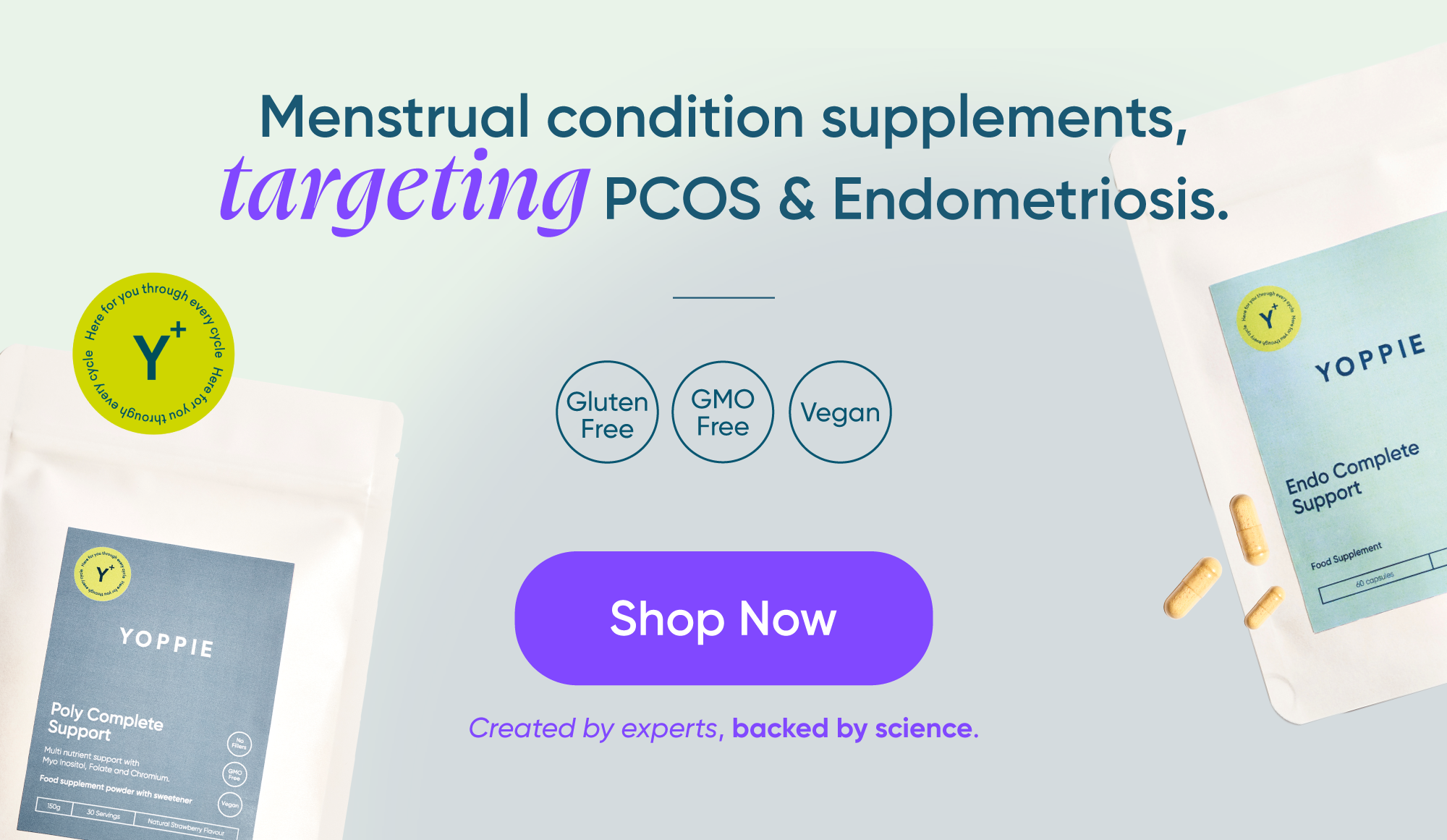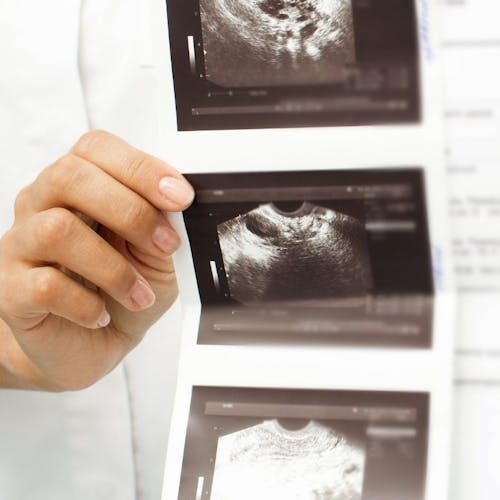This website uses cookies to enhance the user experience. By using Yoppie you are agreeing to our use of cookies.
PCOS Mood Swings: Depression Or Something Else?
Written by Yoppie
06 Dec 2021
What are ‘normal’ PMS mood swings?
What about PCOS mood swings?
So I’m more likely to get mood swings if I have PCOS?
Why does this happen?
Is it depression, or something else?
I think my depression is related to my PCOS. What can I do?
If you suffer from PCOS, you may be well versed in dealing with the physical symptoms of the condition; acne, weight gain, unwanted hair growth, you know the ones. But with PCOS sufferers more likely to experience depression and anxiety, it’s important to understand the emotional and mental symptoms associated with it too. Let’s see if those mood swings are purely PMS or something more.
What are ‘normal’ PMS mood swings?
The most common symptoms of PMS related to our emotions or mental health include feelings of sadness, anxiety, and irritability. You may feel these in the days leading up to your period, as well as feeling tired, having trouble sleeping, or experiencing changes in your appetite and sex drive. These are all considered relatively typical PMS symptoms, and though they can be frustrating, they shouldn’t be affecting your ability to live your daily life.
What about PCOS mood swings?
If you live with PCOS you’re probably familiar with many of the common physical symptoms, such as irregular periods, excessive hair growth, weight gain, hair loss from the head, acne, and more. But when it comes to the emotional and mental symptoms of the condition, you may experience higher levels of fatigue, insomnia, sleep apnea, depression and anxiety. To put it simply, you could experience typical PMS symptoms, but worse.
So I’m more likely to get mood swings if I have PCOS?
Not everyone with PCOS will experience all of the above symptoms, but it’s always good to know when you’re at a higher risk of something so you can be prepared and take steps to fix it if it does rear its ugly head.
For those with PCOS, research has found they could be significantly more anxious and depressed than those without, and further studies suggest this could be slightly worse for younger people with PCOS. Studies have found that between 27 and 50% of people with PCOS may be depressed, compared to just 19% of people without PCOS.
Why does this happen?
Research hasn’t yet identified a clear correlation between the two, but there are science-backed theories as to why they could be related:
- Insulin resistance: Around 70% of those with PCOS are insulin-resistant, which can lead to elevated blood sugar. As insulin resistance changes how the body creates certain hormones, this can contribute to prolonged stress and depression.
- Hormones: Higher levels of androgens could contribute to higher rates of mood disorders in people with PCOS, including depression.
- Stress: PCOS can undoubtedly cause stress to people who have the condition, and stress is clearly linked to anxiety and depression.
- Inflammation: PCOS is associated with inflammation in the body, and prolonged inflammation can cause high cortisol levels, leading to stress and depression.
- Obesity: Studies have found that people with PCOS and a higher BMI may have slightly higher levels of anxiety and depression, and vice versa.
- Physical symptoms: There’s also a possibility that anxiety and depression could arise as a result of physical symptoms of PCOS. One study found the symptoms alopecia and fertility issues were associated with anxiety, while acne was associated with depression.
Is it depression, or something else?
Depression comes in many forms, and this is also true for those suffering from PCOS. Studies have found PCOS to be associated with an increased risk of diagnosis of major depressive disorder, anxiety, bipolar I, bipolar II, seasonal affective disorder, and obsessive compulsive disorder. Sometimes it is difficult to distinguish the type of depression or disorder you may be suffering from, as the signs and symptoms can be very similar, including fatigue, sleep disturbances, tearfulness, lack of motivation, appetite changes, loss of focus, loss of interest in hobbies, and feelings of sadness, loneliness or helplessness.
If you are experiencing any of these symptoms, whether you believe them to be PCOS-related or not, speak to your GP for advice on how to get back to feeling your best. You should never have to live with symptoms like this, so reach out for help as there are many options available now, such as the below.
I think my depression is related to my PCOS. What can I do?
The first step, whether your depression is related to PCOS or not, is to speak to your GP. If PCOS is the source of the problem, your doctor will usually treat the underlying cause, as well as the depression or anxiety you are experiencing. As an example, if you are insulin-resistant you may be recommended a low-carb diet to fix the issue. If it’s hormones, you may be recommended birth control pills to balance these out.
The depression itself can be treated in a number of ways, such as individual therapy or counselling, support groups, medications, mindfulness practices, nutritional supplements, and more. Do not be discouraged if you have to try several treatment options before finding what works for you, and never be afraid to reach out and get the help you need to return to your depression-free self.
Are you suffering with depression or anxiety due to a PCOS diagnosis? We would always encourage you to speak to your doctor to help with this. You can also speak to others who may be suffering from similar conditions in our Full Stop FB group, and chat about your own experience. Or feel free to ask any questions you have on Instagram at @itsyoppie. Don't forget that our personalised menstrual care subscription can get organic tampons, PCOS supplements and much more delivered easily and regularly through your letterbox, which is one less thing to worry over.
Section jump
Back to top
Subscribe To Our Newsletter
YOPPIE





© 2026 Yoppie is a registered trademark of Phlo Technologies Ltd.
Yoppie's supplements are not a substitute for a varied diet and healthy lifestyle and are not intended to diagnose, treat, or cure any disease. If you are pregnant, breastfeeding, have a medical condition or are under medical supervision, please consult with your doctor before taking any of our products.







